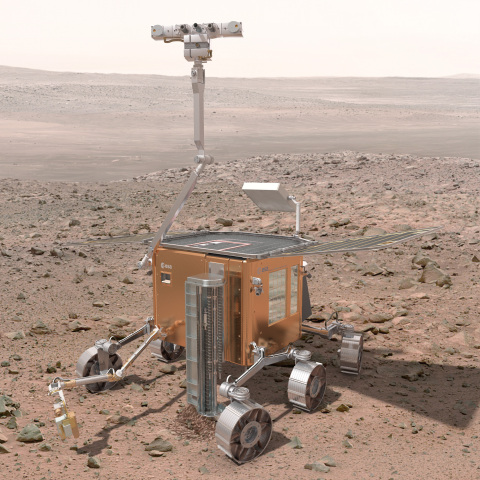Saft has signed a contract from Airbus Defence and Space Ltd (UK) to develop, qualify and test a specific lithium-ion (Li-ion) battery system to power the ExoMars Rover vehicle. The Rover is the key component of the ExoMars Programme, run jointly by the European Space Agency (ESA) and Roscosmos, the Russian Federal Space Agency. Thales Alenia Space Italia SpA is the ExoMars prime contractor.
 The objective of the ExoMars Programme is to search for evidence of current or extinct life on the red planet as part of a branch of science called exobiology. This 300 kg Rover will land on the surface of Mars before moving between a number of sites and drilling into the surface to capture samples for analysis by its onboard scientific instruments.
The objective of the ExoMars Programme is to search for evidence of current or extinct life on the red planet as part of a branch of science called exobiology. This 300 kg Rover will land on the surface of Mars before moving between a number of sites and drilling into the surface to capture samples for analysis by its onboard scientific instruments.
Because any potential life on Mars may take the form of delicate bacterial cultures, ESA has placed a high priority on ‘planetary protection’. This requires an exceptionally high level of cleanliness to avoid contaminating any complex organic molecules that may be found.
The ExoMars Rover’s power system will comprise solar panels capable of producing 1,200 Wh working in combination with Saft’s 1142 Wh (nominal) battery system. The system will store the energy generated by the solar panels to ensure uninterrupted operation during the Martian night.
The ExoMars Rover battery system is based on Saft’s MP 176065 Integration xtd cells. A key advantage of these Li-ion cells is their compact, lightweight design that minimizes the overall battery mass, so that more of the mission payload can be utilized for scientific instrumentation. Furthermore, the cells have been developed to deliver high performance in demanding operating conditions, even when subject to extreme fluctuations in temperature from -40˚C to 85˚C.
Saft is scheduled to deliver the battery system before the end of 2016 to meet ESA’s launch plans for 2018. It is being manufactured in an ultra clean environment to ensure planetary protection.







